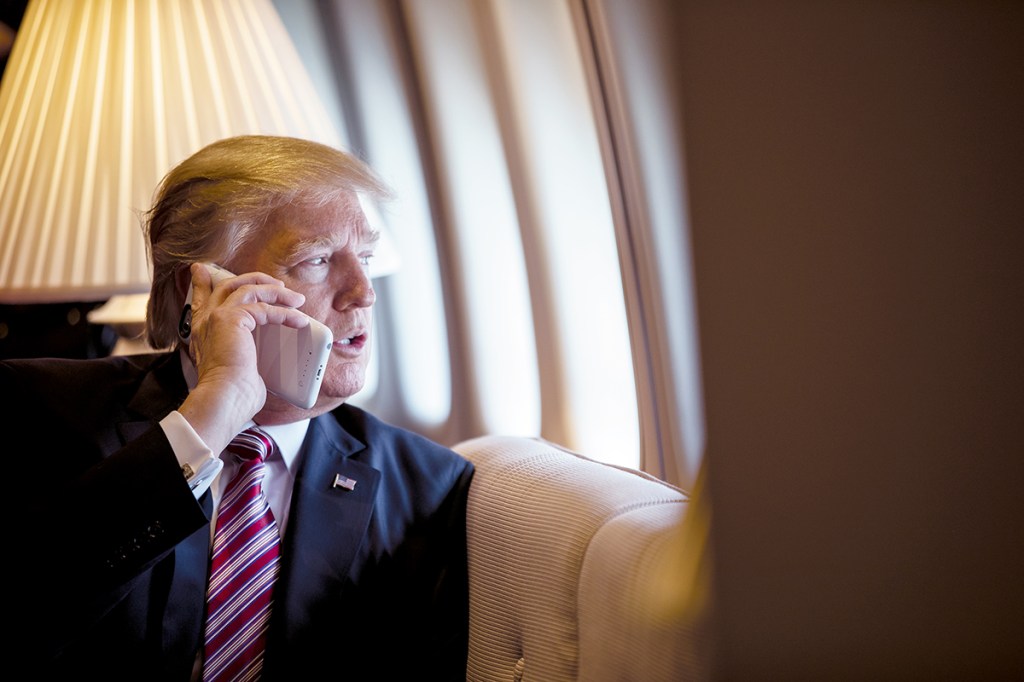The powers and limits of presidential pardons

Late last week, The Washington Post reported that President Donald J. Trump “has asked his advisers about his power to pardon aides, family members and even himself” in connection with special counsel Robert Mueller’s Russia investigation. Shortly after, one of the president’s personal attorneys denied it, saying that Trump’s legal team is not looking into the question of whether the president can pardon himself.
The report touched off a fierce debate over a piece of governing framework that hasn’t been critical to U.S. constitutional law in decades, said Northeastern law professor Martha Davis. That is to say, can a sitting president pardon himself?
Davis, a constitutional law expert, said the Constitution’s language is silent on whether a president can pardon himself. Some argue that the absence of a clear prohibition indicates that the power is so broad that a president could indeed try to take such action.
Whether that would stand up to Supreme Court examination is an entirely different matter.
Historical context
Since William McKinley’s presidency, (the earliest that statistics are available from the federal Office of the Pardon Attorney), there have been more than 20,000 executive pardons granted, but none for a sitting president.
The section of the Constitution that addresses executive pardons is short. Found in Article II, Section 2, it reads, “The president…shall have power to grant reprieves and pardons for offenses against the United States, except in cases of impeachment.” That’s it.
Davis noted that the U.S. Constitution’s drafters drew liberally from the Massachusetts Constitution, which had more explicit limitations for executive pardons, specifying that they could only be issued after a conviction.
“The Massachusetts language adds support to the position that the pardoning power in the U.S. Constitution is very broad, since the founders had this more limited language in front of them but instead drafted a broader provision,” Davis said.
Even the Massachusetts Constitution language was borrowed. The origins of pardoning power go back to England in the 600s, in a statutory provision defining the power of Anglo-Saxon kings, Davis said.
Despite this history, the exact limitations of the power haven’t been especially closely examined—until now—because the legal framers never considered that an executive might use it for himself.
“When the framers borrowed this concept from England, it was simply not contemplated that the president might use the power to pardon himself,” Davis said. “It would be such a despotic act that it thankfully has not come up in this country before.”
Furthermore, since the language is so broad, the president’s pardon power is not limited to U.S. citizens, but rather anyone who’s perpetrated offenses against the U.S., Davis said.
And the Supreme Court says…
While the letter of the law is broad enough that it wouldn’t clearly prevent Trump, in this case, from trying to pardon himself, it’s likely that such an action would be challenged in the Supreme Court. Such a case would require the Supreme Court justices to closely examine the history of the pardoning power to determine what the Constitutional framers intended when they drafted it.
“The president can fashion anything he wants as a pardon, but whether or not it stands up in court is the real question,” Davis said. “There’s a strong possibility that the court would find inherent conflict in the act of pardoning oneself that goes against basic principles of limited government and fairness that were primary motivators of the Revolution and the constitution’s drafters.”
Bringing such a case to the Supreme Court, Davis said, would create “tremendous chaos in government.”
But there could be a workaround.
The 25th Amendment of the Constitution provides a mechanism for making the vice president “acting president” if the president is unable to carry out his duties.
This means Trump could conceivably declare himself “unable to discharge the powers and duties of his office,” by submitting a written declaration saying as much to the President pro tempore of the Senate and Speaker of the House. This would make Vice President Mike Pence acting president. In that position, Pence could pardon Trump. Trump could then resume his office upon submitting a written “declaration to the contrary.”
“That might still be an abuse of power, but would comply more clearly with the concept of pardon, and with the particular mechanisms laid out in the Constitution,” Davis said.





